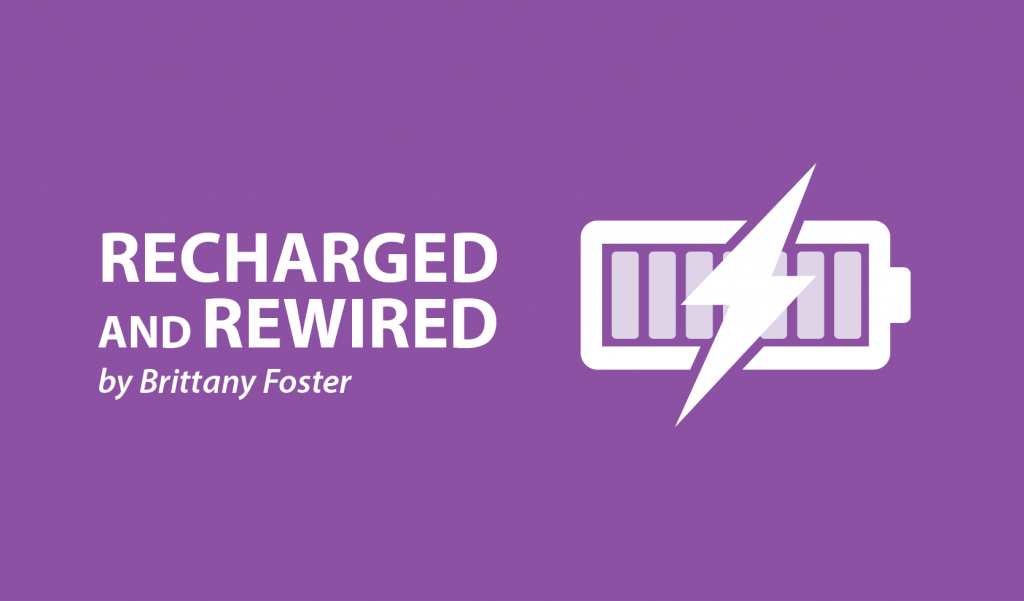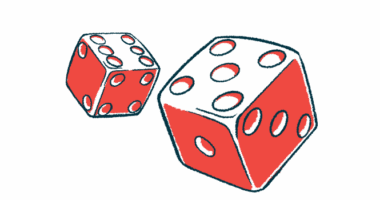Angry? You Bet ― Here’s What to Do

Think back to when you were a child in the school yard. There was always someone who never liked playing by the rules and ruined recess for everyone. The first time the rules weren’t followed, you may have stopped and tried to calmly explain it to them again. They may have heard you, but still repeated the initial offense. I’m sure this would make the child version of yourself cringe. You would get mad, frustrated and may not want that person to play with you anymore. Many life lessons come from playing at recess. If someone does something wrong, you try to find a solution to the problem. If it is something wrong repeatedly, you remove that person from your life, if it’s affecting you.
I’m sure this would make the child version of yourself cringe. You would get mad, frustrated and may not want that person to play with you anymore. Many life lessons come from playing at recess. If someone does something wrong, you try to find a solution to the problem. If it is something wrong repeatedly, you remove that person from your life, if it’s affecting you.
It’s easy to remove someone who is filling your thoughts with anger, but what if the source of your anger isn’t someone else? What if the source of your anger is your own body? It’s hard to cope when this anger is so personal. Anger is a difficult emotion, but it’s one that those of us with PH feel so strongly. You can’t stop the anger from happening, but you can learn to manage it.
So often, those of us with chronic illness and PH will find that our own body has rebelled against us. Our minds have high hopes for the day, but when we move to get out of bed, our bodies tell us something different. From one minute to the next, plans can be canceled, unexpected pain and discomfort can catch you off guard, you may be struck with crippling fatigue and breathlessness. Suddenly, you find yourself becoming angry at these awful situations. Anyone with chronic illness knows our bodies don’t play by the rules.
Sitting with this anger is harmful to mental health. Being angry is an uncomfortable feeling. Your anger, just like all emotions, demands to be felt and expressed. Try to first recognize that you are angry and then try to figure out the reasons you are feeling this way. Is it because you are upset that you didn’t get to do something you really wanted to do? I despise PH and my congenital heart defect on the days when plans that I was looking forward to need to be canceled. It’s important to allow yourself to be angry about this. I get angry at my body on days when I am physically unwell. Who else can I possibly be mad at besides myself?
On days when I feel anger so strongly, after I acknowledge it, I make sure to do something positive for myself and practice self-care. Just sitting in anger will lead to further mental anguish. I try to occupy my thoughts with other things that are positive.
Some positive ways to cope with anger and practice self-care are writing out how you’re feeling; reading, to get your mind off of it; listening to your favorite music; watching a show; calling a friend to talk; texting your support system; taking a shower or bath, to try to relax your body; playing with animals (I prefer dogs and cats); painting your nails; and the list can go on depending on self-care that works for you.
Days when our bodies are like the annoying child in the school yard are just aggravating. It’s easy to become upset and feel anger. Unlike the school yard, though, we don’t get the chance to eliminate our current life situations. We can’t just say “goodbye PH, you have been eliminated because you don’t make my life easier.” I wish we could do this and make it go away. It’s still our bodies, whether they behave for us or not. You have every right to feel anger and be upset, but it’s so important to practice self-care afterward.
You can’t eliminate chronic illness, but you can use self-care techniques to help manage uncomfortable emotions.
***
Note: Pulmonary Hypertension News is strictly a news and information website about the disease. It does not provide medical advice, diagnosis, or treatment. This content is not intended to be a substitute for professional medical advice, diagnosis, or treatment. Always seek the advice of your physician or other qualified health provider with any questions you may have regarding a medical condition. Never disregard professional medical advice or delay in seeking it because of something you have read on this website. The opinions expressed in this column are not those of Pulmonary Hypertension News or its parent company, Bionews Services, and are intended to spark discussion about issues pertaining to pulmonary hypertension.









delores potter
I moved past anger to this darned thing isn't going to get the best of me, or ruin my life. I plan on giving it the good fight. Off to Pulmonary Rehab this morning, and feeling good.
Andrea Rice
Well said, Brittany Foster. I haven't gotten 2 angry with PH because it's pretty new, found out about it when diagnosed December 16th, 2016.
My feelings are related to frustration. I have little fits here and there when I can't remember simple things because my short term memory sucks. When I get angry this is bipolar anger and once I recognize where the anger is coming from listening to rock music with a loud aggravating beat slowly calms me down. I don't have the energy 2 catch my cat when she decides to bite the blinds where I live. in my apartmen I don't like her personality, she's aggressive, very bold and never lets me have any peace. She's not independent but clingy. Thought cats are independent.
This illness has taught me to not make plans live life more spontaneous that works better. When I lack energy I eat sweets and the feeling I get is similar to a rocket being lit by a match, I'm moving! Don't know if having PTSD (post traumatic stress disorder) can be considered positive or negative with this illness but I'm reclusive now, don't have many interests to do anything or wanting to go places. Have no interest in the general public and when I need 2 talk 2 someone I have my adult son and my therapist 2 individuals that listen without judgment and offer positive advice. There is one slight issue with the therapist. She believes that being strong-willed all I have to do is drive my car over 2 her office and that's it. She doesn't get I still have to get out of the car and physically walk into the building where her office is. So, I came up with this idea of sending her articles from this sight so hopefully she'll understand how simple tasks can be difficult with this illness.
I've even accepted death if it happens to show up earlier than what my doctors say. My son however gets extremely upset with this subject, guess he's attached worse than super glue. I am more negative than positive and believe it's a combo of everything that I have. My son is very optimistic and refuses to allow me to give up. Even with having Bipolar and all the ups and downs of this illness he still stands by my side in full support. Don't know which illness is considered worse but PH is here and going to stay until I die so gotta make the best of the situation. The doctors suggested looking at life realistically which I do. I have made a few adjustments trying to walk slower paying attention to how fast I walk, believing my years up north walk fast, talk fast, drive fast, work fast ways I lived can be changed. It's a work in progress 2 slow down and really do it because I don't think about it. It's automatic, so I need focus my eyes on my feet to take smaller steps now.
Researching and eating foods that are good for my heart and lungs even though can eat whatever I want. No specific diet needed at this time.
The hardest with this illness is that I can't work anymore. I don't know what I can do without having enough energy to walk and I walk about 3 feet, stop, repeat until I get 2 where I'm headed. Not on oxygen yet but it has been suggested. Can't be around kids with PTSD and I enjoyed years teaching. Having to rest more than usual and taking naps upsets me not being able to sleep thru the night. My huge feet 3x's the size they once were walking and sometimes losing my balance. Fell once don't want 2 fall again. Want a wheelchair instead of a cane. Use a buggy with weights at the bottom when out and about for that extra support, however I'm tall and the buggy needs to be at a certain height to accommodate me to be able to walk upright instead of bent over. Not good 4 my posture. I've noticed many folks that use walkers or buggies or canes are bent over when they walk. Haven't figured out how to solve this issue yet, but I'm thinking.
Last but never the least, told cardiologist recently graduated to start having health fairs in neighborhoods everywhere to get the word out about this chronic illness that is unknown to many people. This site is awesome for those of us affected with this chronic illness 2 vent, 2 ask 4 advice, 2 share personal stories with others, however besides medical personnel how do we affected people get the word out to the general public? Anyone with ideas, I'd like to hear what you think.
Jamie Paul
All I need to get by, is knowing I am 65 and have PAH and looking at the younger
people with this awful disease, I am humbled. You see I have had and am having
a blessed life, I only imagine how I would feel younger with this disease. To all of
the people taking this journey, try to look around and see the blessings we have.
And remember there is always some one having a worse time with something else.
There is always something to be thankful for if you look for it. I take comfort in the fact
that so many people are working on trying to make our lives better with this disease
so I try not to get bogged down in sickness, but celebrate those individuals. Thank you to my heart and my pulmonary doctors for them giving care that I am sure makes
their heart ache with my disease.
Fran Etzkorn
Today is one of the days I am feeling sorry for myself. Mad that I can't clown with the rest of my clown friends during this week of International clown week. I caught a simple cold and I just am not getting over it. No energy tired. I know I have PH but I still want to giveback to everyone. I don't want to just sit around and do nothing,
Diana
The getting angry with your own body thing is very hard. There doesn’t seeyto be much help in getting mad at PAH because it’s not going anywhere
I get angry combing a sligh slope. It just gets harder . Anger and fear are easy but we need to do better than that we need to live in today and not think about how we used to be. Very difficult but probably the only way